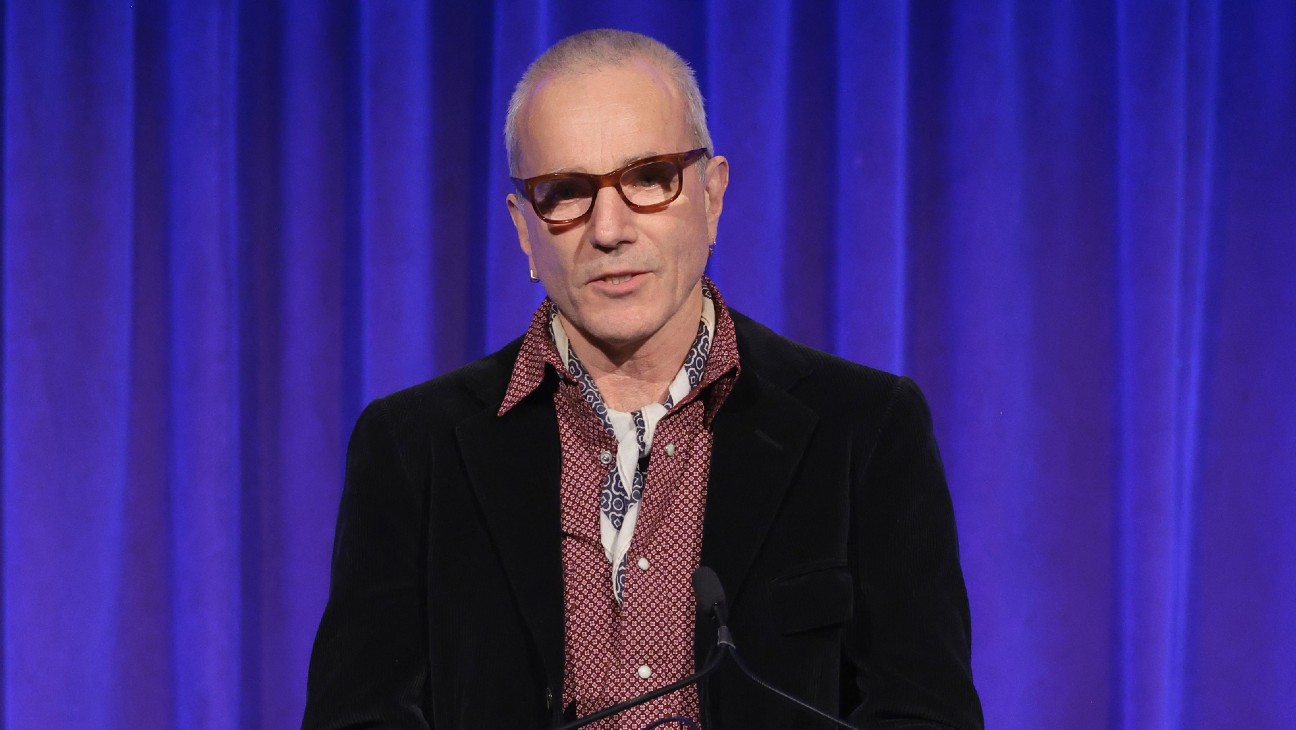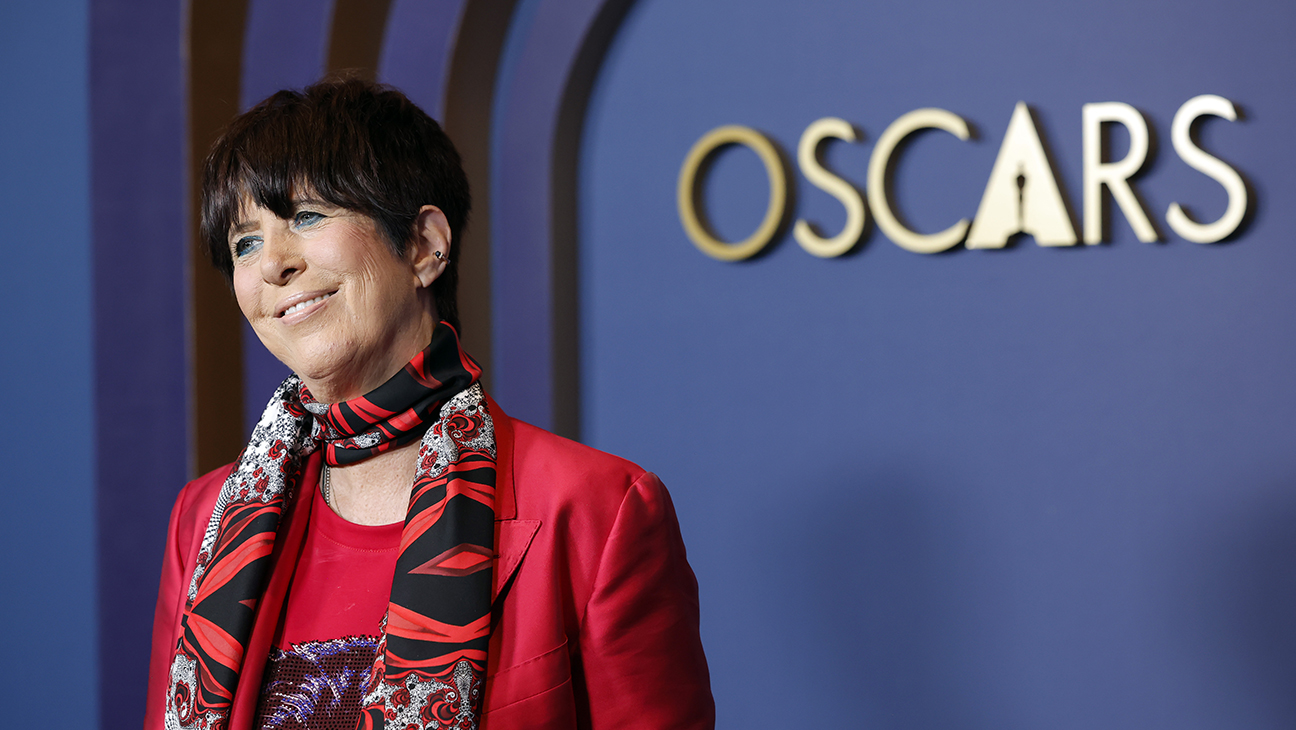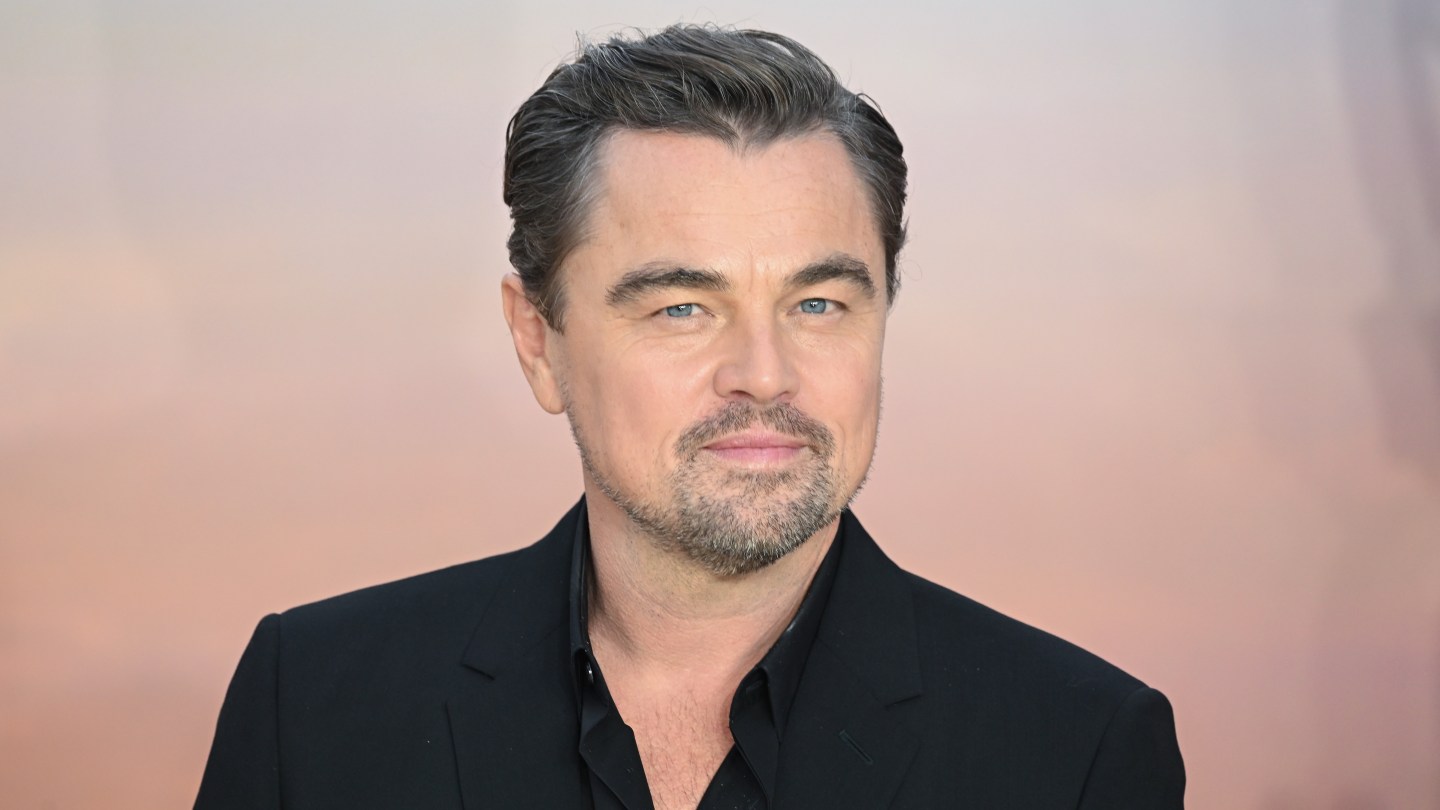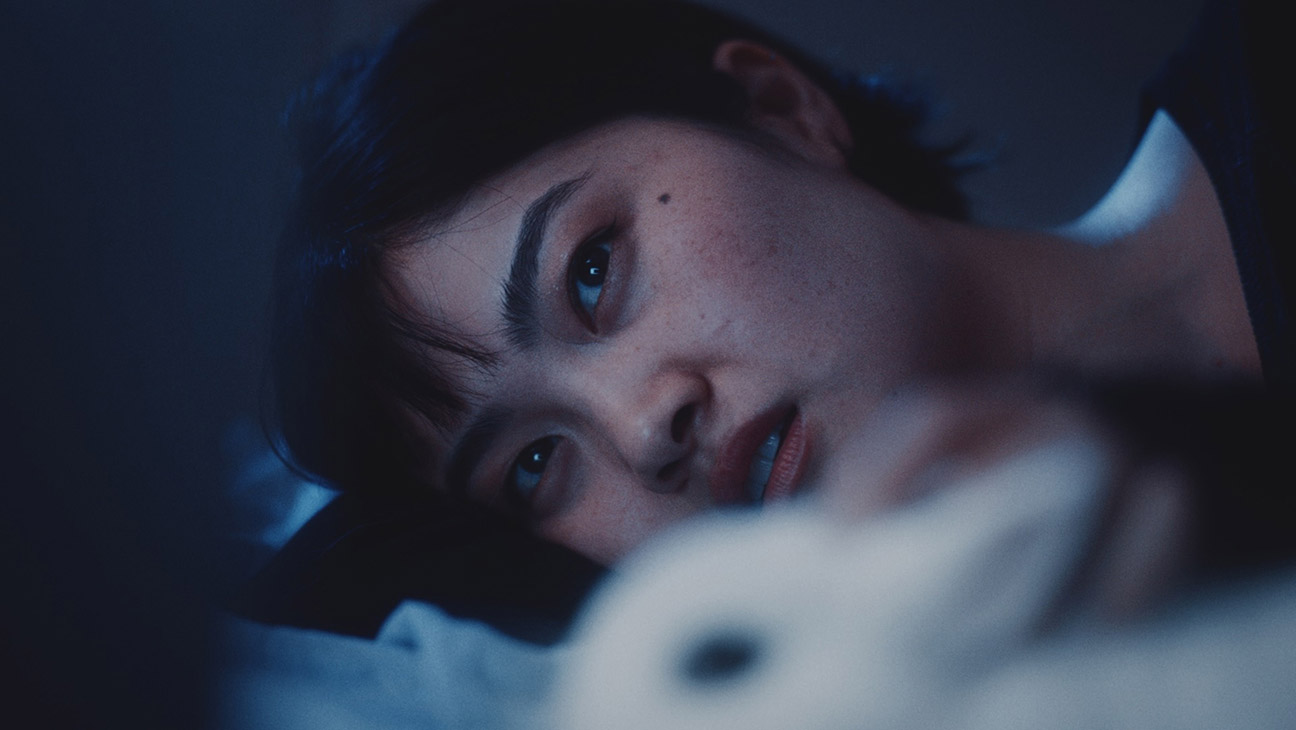Daniel Day-Lewis was back in the London spotlight for the first time in years on Wednesday, appearing at a jam-packed Screen Talk as part of the 69th edition of the BFI London Film Festival (LFF) where he was welcomed with a rousing ovation after signing autographs for fans before the event.
Discussing his return to acting after eight years in family drama Anemone, directed by his son Ronan Day-Lewis, and his career, the three-time Oscar winner shared: “It began with a pure wish really to work with Ronan” to address the “sadness” of maybe not getting to do so in film otherwise. He described the film as an exploration of brotherhood and the reuniting of estranged siblings.
“The lack of need for words” is what interested him, and understanding his character’s army career trajectory was key for him to unlock the character, who is chasing his brother, and his behavior.
Anemone follows a middle-aged man, portrayed by Sean Bean, on his journey into the woods, where he reconnects with his estranged hermit brother, played by Day-Lewis. Samantha Morton also stars in the movie. Day-Lewis previously shared that he had “certain reservations about being back in the public world again” by starring in the film, but that his son “made it pretty clear that he wasn’t going to do it if I didn’t do it.”
The project from Focus Features had its world premiere at the New York Film Festival. The movie is the feature directorial debut of Ronan Day-Lewis and was co-written by him and his father.
In a wide-ranging discussion, the star was asked on Wednesday about how he has gotten into the physicality of many of his roles, such as My Left Foot. He eased into that one with “very gentle steps,” he shared. “I thought of the wheelchair as a cage … and I began to work a lot with my foot.”
Asked about his approach to acting, Day-Lewis said that immersion “to me makes sense,” but other actors can do great work without that, “and hats off to them.” He emphasized that “I still find that process a joyful thing. We’re playing games for a living.”
The star also argued that criticism of method acting in recent years has at times been portrayed like a cult, saying such comments often come from people who don’t really understand it. “It is invariably from people that have little or no understanding of what it actually involves,” Day-Lewis said. “It’s almost like some special science that we’re involved in, or a cult, but it’s just a way of freeing yourself [for] the spontaneity when you are working with your colleagues in front of the camera, so that you are free to respond in any way that you’re moved to in that moment.”
The star emphasized that he came into My Left Foot without the screen experience he could have used. ”I was clueless,” he said, drawing laughter. “I didn’t have a fucking clue what I was doing.”
Back when he went to acting school, theater was considered the “elite cultural form,” while film was seen as “dodgy,” and TV got the reaction of “really?!” he recalled. “It always bugged the hell out of me that we were basically performing for a group of privileged people,” he said about his feelings towards such attitudes.
To more laughs, he shared how “Stephen Frears was exasperated with me,” because Day-Lewis always needs something “real” to be able to stay in the illusion and in the sphere of acting. For example, he would, in a role, stop sweeping the floor once it was clean, to the director’s frustration, Day-Lewis said.
Asked about his long creative relationship with Jim Sheridan, he shared: “I met Jim, and I basically had a crush on him within 10 minutes.”
He also mentioned on Wednesday how he “revered Marlon Brando,” among other actors. And he shared: “I had a crush on Mary Poppins. Julie Andrews, I mean,” he also shared. That and Zulu were two of his favorite films when he was young.
The role that changed his life when he viewed it was Dai Bradley in Kes. “It remains one of the greatest performances,” he said before expressing hos “admiration for Ken Loach.”
The star also discussed working with writer-director Rebecca Miller, now his wife, on The Ballad of Jack and Rose and now his son. “There was never any question about … a conflict of interest” between family and work roles in both cases, he concluded. Both movies were “experiences that people will remember happily,” he said.
Ronan Day-Lewis joined the on-stage discussion for the final 20 minutes, sharing that the shoot for Anemone, much of which takes place in a shed, was “claustrophobic” but also “incredibly intimate.”
The two wrote the script together, with Day-Lewis senior mentioning that he can’t really type. But his son also saw another benefit of working with his father, explaining the familial collaboration this way: ”It takes the edge off because you know they will give you the benefit of the doubt,” as long as you have a good relationship. Added his father: “It was a joyful experience to have this time together.”
Ronan Day-Lewis highlighted how David Lynch has influenced him and how he shared with the legendary filmmaker the interest in “exploring darkness” without “existing in darkness.”
Asked about funny moments in Anemone, his father said, among other things, that he found the idea of ”shitting on a priest” that is mentioned in one scene really “hilarious.”
Daniel Day-Lewis recently admitted he regretted announcing his retirement in 2017 following his role in Paul Thomas Anderson’s 2017 film Phantom Thread. “Looking back on it now — I would have done well to just keep my mouth shut, for sure,” he said. “It just seems like such grandiose gibberish to talk about. I never intended to retire, really. I just stopped doing that particular type of work so I could do some other work.”
The star also shared final words of advice for young actors on Wednesday, before a farewell standing ovation. “A lot of young actors, especially if they’re lucky enough – when you get chances, people want to keep coming for you. They keep looking for you as long as the money’s coming in,” Day-Lewis said. “And so it takes a certain steadiness in yourself to say, ‘No, I need to just do this the only way I know how.’ And I did just do it the only way I knew how.”





